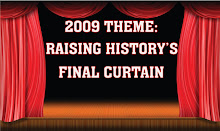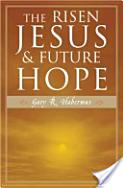By truth we signify that which corresponds to reality. An error,
then, is what does not correspond to reality. Truth is telling it like it
is. Error is not telling like it is. Hence nothing mistaken can be
true, even if the author intended the mistake to be true. An error is a
mistake, not simply something that is misleading. Otherwise, every sincere
utterance ever made is true, even those that were grossly mistaken.
Likewise, something is not true simply because it accomplished its intended
purpose, since many lies succeed.[1]
At this point a couple of questions are in order. Is the NIV mistaken when it teaches that Joseph was the father of Jesus? Are the modern versions making a mistake when they teach that Jesus Christ fell from heaven in Isaiah 14? The obvious answer to both of these questions is yes. Jesus did not have an earthly father nor did he fall from heaven. Any belief to the contrary would be considered heresy by the same Evangelical scholars who teach that there are no real differences in doctrine between various Bible versions.
First principles are the foundation upon which all logical thought is based. Without these fundamental precepts no thought would be possible. One of these first principles is called The Principle of Noncontraction, it asserts, being is not nonbeing (B is Not Non-B)--being cannot be nonbeing, for they are direct opposites, and opposites cannot be the same.[2] A second foundational principle that is pertinent to our discussion is the Principle of Excluded Middle. Excluded middle states, either being or nonbeing (Either B or Non-B)--"Since being and nonbeing are opposites, and opposites cannot be the same, nothing can hide in the cracks between being and nonbeing. The only choices are being and nonbeing."[3]
Their relevance of these principles is paramount as we reach the climax of the argument presented in this essay. The principles of Noncontradiction and Excluded Middle clearly establish that two things that are different cannot be the same. Furthermore, we have already seen that our English Bibles have contradictory readings. Moreover, these divergent readings in modern versions contain mistakes that undermine the fundamentals of the Christian faith irrespective of the average believer’s ignorance of their existence. Therefore, it is the height of absurdity to call all of these Bibles the word of God. They may all contain some of the words of God but cannot legitimately all be the Word of God because they teach opposites. In orders words, basic logic demonstrates when two things are different the only possible options are that one is right and the other is wrong or they are both wrong. Clearly, one cannot conclude that they are both wrong in this case for that would leave us without a Bible and no final authority. Consequently, by default, the only conclusion that logic and revelation will both accept is that one Bible and its readings are correct while those versions which disagree are in error.
How many Bibles did God inerrantly inspire as a reflection of his nature? The obvious answer is only one. Does inerrancy extend merely to the original manuscripts (which no longer exist) or did God promise to providentially persevere the very words of his inspiration? In the final analysis, it is only the King James position that maintains the integrity of inspiration and is consistent with both logic and Scripture. The King James Bible and its translators were not inspired; rather, they made a literal word for word translation of the preserved text into English. Scholars have long ridiculed the notion that a translation can be inerrant. However, for the Bible believer, this is not far fetched. Moses spoke to Pharaoh in Egyptian despite recording his words in Hebrew. The Holy Spirit made a translation that even Evangelical scholars argue was inerrant since the original autographs of the Torah were written in Hebrew. In the end, the scholars union is boxed into admitting on the basis of its own doctrine that a translation can be inerrant.
Endnotes:
[1] Geisler and Howe, When Critics Ask, 13.
[2] Norman L. Geisler. Baker Encyclopedia of Christian Apologetics. (Grand Rapids: Baker Book House, 1999), 250.
[3] Ibid., 251.


























No comments:
Post a Comment